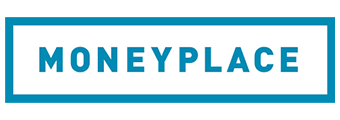
If you’ve got a classic or vintage car in your sights that you simply must own, you might not necessarily have the funds for it. In that case, your first instinct might be to take out a car loan.
However, where you’ll probably run into road blocks is that with many secured car loans, the lender imposes a limit on the age of the car. This is often up to 12 years old - hardly ‘classic’ territory.
So where do you start? The next most obvious options are to find secured car loans with no vehicle age limit, a specialist lender, a personal loan, or tapping into your home’s equity.
Loans for Classic & Vintage Cars

Fixed Unsecured N/A More details FEATURED Unsecured Personal Loan (Excellent credit) (5 Years)
Unsecured Personal Loan (Excellent credit) (5 Years)

Fixed Unsecured N/A More details FEATURED No Fee Personal Loan (5 Years)
No Fee Personal Loan (5 Years)

Fixed Unsecured N/A More details FEATURED Low Rate Personal Loan Unsecured ($5k-$100k) (5 Years)
Low Rate Personal Loan Unsecured ($5k-$100k) (5 Years)

Fixed Unsecured N/A More details Unsecured Personal Loan - Excellent Credit (5 Years)

Fixed Secured N/A More details Secured Loan (5 Years)

Fixed Secured N/A More details IMB Secured Personal Loan (5 Years)

Fixed Unsecured N/A More details Unsecured Personal Loan (Excellent Credit) (5 Years)

Fixed Unsecured N/A More details Low Rate Personal Loan (Excellent Credit) (5 Years)
Secured car loans with no age limit
There may be a few lenders out there that do not have a specific age requirement for the vehicle to be used as security for a loan. This can be handy as many ‘classic’ cars are over 30 years old.
Pros
-
Able to get a regular, secured car loan for your pride and joy
-
Might have lower interest rates than other types of financing
Cons
-
You might need to satisfy an additional range of criteria such as having your vehicle valued or your finances more closely examined
-
You may not be able to use this type of loan to fund upgrades or restorations of classic cars
Specialist lenders
Outside the usual realm of banks and car finance providers are a series of specialist lenders that may offer specific products for classic cars. Such providers include Fox Finance and AFS, though there are likely many others.
Pros
-
It can be good to have a specialist lender who knows the ins and outs of classic cars and provides a tailored product for that
-
May be able to work out a solution if you need to fund a restoration product or other niche finance need associated with classic cars
Cons
-
Likely have higher interest rates than regular banks and lenders' car loan products
-
May have more onerous application and income conditions, including having your vehicle valued
Personal loans
Personal loans are generally more concerned with you, the borrower, rather than what you’re borrowing for. Personal loans can either be secured or unsecured. The security could be something that isn’t the car - for example, a term deposit, jewellery, or another asset. Unsecured means the opposite and your vehicle isn’t used for security.
Pros
-
More flexible, especially if you want to draw extra funds for a restoration project or to bring the car back to its former glory
-
Secured personal loans can have competitive interest rates
Cons
-
Unsecured personal loans tend to have higher interest rates than other types of loans that use a security
-
If you opt for unsecured, there may be more scrutiny placed on you, the borrower, and your credit score, income, employment, and assets and liabilities
Home equity
If you have already made strong inroads on your home loan and have built a good amount of equity, you could draw down on the equity or use it as security to fund a vehicle purchase.
Pros
-
Home loans typically have lower interest rates than other types of debt and can lead to lower repayments
-
Can be more frictionless as your mortgage lender already has a snapshot of who you are
Cons
-
Relies on you having sizeable equity to start with, which you will lower by funding the car purchase
-
The total interest paid could be higher as home loans are typically taken out over 25 or 30 year terms, and that amount dragged over a longer period means more interest payable
What to look for in a classic car loan
When looking at finance for your classic car, your options might be more limited, but that doesn’t mean you shouldn’t consider a few fundamentals.
-
Competitive interest rate: A competitive interest rate lowers interest payable and your repayments. Also take a look at the comparison rate, which gives an indication as to the total cost of the loan.
-
Low fees: Look for a lender with low fees. This will mitigate the total cost of the loan. You will have to do the maths but you might be better off choosing a lender with a slightly higher interest rate, than a low-rate product with lots of fees.
-
Repayment terms: It could be a good idea to look for a product with flexible loan terms, such as extra repayments. Alternatively, you may opt for the relative stability of a fixed-rate loan.
Photo by Meritt Thomas on Unsplash